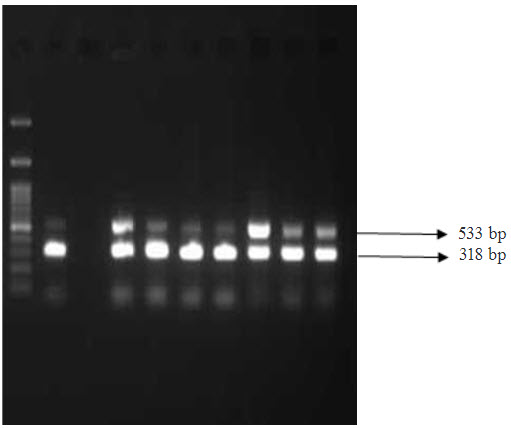Prevalence of methicillin resistant Staphylococcus aureus in retail buffalo meat in Chennai, India
Keywords:
Bubalus bubalis, Prevalence, buffaloes, prevalence, S. aureus, MRSA, buffalo meat, retail outletsAbstract
Staphylococcus aureus is a major pathogen, affecting both human and animals causing severe morbidity worldwide. In addition, several reports of isolation of S. aureus, especially methicillin-resistant Staphylococcus aureus (MRSA) from food animals and their meats have raised concern about its potential as food borne pathogen. The present study was carried out to evaluate the prevalence of S. aureus in buffalo meat marketed in retail outlets in Chennai and to detect the presence Methicillin resistance (mecA) gene in these isolates. A total of 40 buffalo meat samples were collected from retail outlets and isolation and identification. The results revealed that coagulase positive Staphylococci were isolated from 29 (72.5%) samples, coagulase negative staphylococci were isolated from 6 (22.5%) samples and 5 samples were negative for staphylococci species. Of the 29 coagulase positive isolates 25 (86.2%) isolates were presumptively confirmed as S. aureus by biochemical test with overall prevalence of 62.5% (25/40) in retail buffalo meat. Duplex PCR was performed for simultaneous detection of both femA, a marker specific for S. aureus and mecA gene, the gold standard for detection of methicillin resistance in S. aureus. All the 25 presumptive S. aureus isolates amplified femA gene (318 bp) and 13/25 (52%) of the isolates carried mecA gene (533 bp). The PCR product (mecA) was purified, sequenced and submitted to NCBI (Accession Number: KT885189). The higher prevalence of S. aureus indicates poor hygiene practices and presence of mecA gene in S. aureus isolated from retail buffalo meat indicates that buffalo meat sold in the retail outlets in Chennai could be a potential source for transmission of MRSA to consumers.
Downloads
Metrics





.png)








